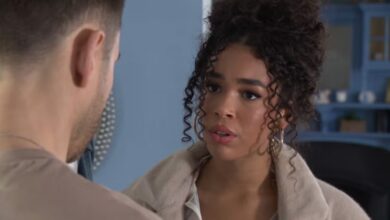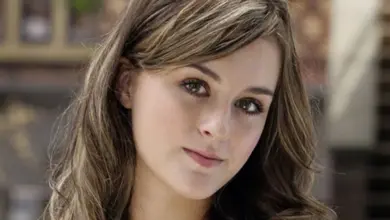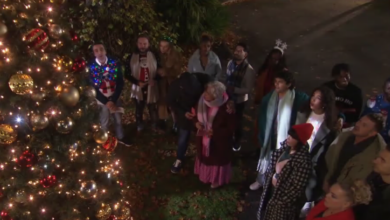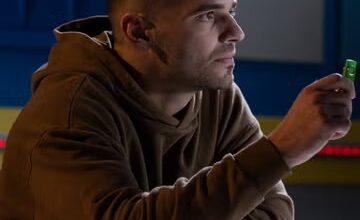Hollyoaks star Isabelle Smith has explained the changing viewer response to her character Frankie Osborne and her story over the past year.
Darren’s twins Frankie and JJ returned to the village as teenagers at the start of 2024, but Frankie’s behaviour quickly became a problem. She slapped Nancy during a confrontation and later accused Jack of touching her inappropriately.
Viewers found out the reason for her behaviour when it was revealed that she had been sexually abused by JJ when they were younger, and the abuse had started up again.

Lime Pictures
The harrowing storyline played out over months, until Frankie found the courage to tell Darren the truth and report JJ to the police.
After the show’s time jump and JJ’s leukaemia treatment, he is now facing trial for his sexual abuse, in scenes which will air next week – where a verdict will be reached.
Following these episodes, Hollyoaks will release a special vodcast on Wednesday, January 15 at 7.30pm, featuring actors Isabelle, Ryan Mulvey and Ashley Taylor-Dawson, alongside executive producer Hannah Cheers and director David Crowley.

Lime Pictures
In the hour-long vodcast, which reflects on the powerful courtroom scenes and the impact of the storyline as a whole, Isabelle admits that she struggled with the audience’s initial reaction to Frankie, before JJ’s abuse was revealed.
She said: “In the beginning, I came to [Ashley] and said ‘Everyone hates Frankie! She’s horrible and she’s always gobby and she’s shouting at everyone.’ I had people who were messaging me saying, ‘I hate Frankie! She’s a horrible character, I wish she’d go away’.

Lime Pictures
“Then I had the complete flip side of, ‘Oh my god, now I know why Frankie was acting the way she was acting. I completely sympathise with the character. I want her to go on and get the justice. Thank you for doing this storyline.’ The messages completely flipped.”
“If somebody’s acting out like that, maybe there’s a deeper reason behind it,” she continued. “I think that’s what got people talking in the first instance, and the conversation’s been taken so much further than we could ever have hoped and imagined.”








